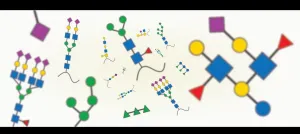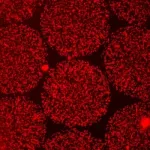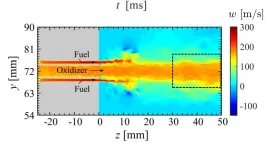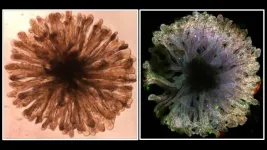Yale Cancer Center study reveals new pathway for brain tumor therapy
2021-06-15
(Press-News.org) New Haven, Conn. --In a new study led by Yale Cancer Center, researchers show the nucleoside transporter ENT2 may offer an unexpected path to circumventing the blood-brain barrier (BBB) and enabling targeted treatment of brain tumors with a cell-penetrating anti-DNA autoantibody. The study was published today online in the Journal of Clinical Investigation Insight.
"These findings are very encouraging as the BBB prevents most antibodies from penetrating the central nervous system and limits conventional antibody-based approaches to brain tumors," said James E. Hansen, MD, associate professor of therapeutic radiology, radiation oncology chief of the Yale Gamma Knife Center at Smilow Cancer Hospital, and corresponding author of the study.
Deoxymab-1 (DX1) is an unusual cell-penetrating autoantibody that localizes into live cell nuclei, inhibits DNA repair, and is synthetically lethal to cancer cells with defects in the DNA damage response (DDR). Researchers have now found that the transporter ENT2 facilitates brain endothelial cell penetration and BBB transport by DX1. In efficacy studies in mice models, DX1 crossed the BBB to suppress orthotopic glioblastoma and breast cancer brain metastases.
"Our data demonstrate the ability of DX1 to cross the BBB and suppress brain tumors in multiple models, and we are particularly impressed that DX1 was able to yield these results as a single agent in these difficult to treat tumor models," said Jiangbing Zhou, associate professor of neurosurgery at Yale School of Medicine and co-corresponding author of the study.
"We believe that the ENT2-linked mechanism that transports DX1 across the BBB and into tumors has potential to contribute to multiple new strategies in brain tumor therapy," added Hansen. "In addition to establishing proof of concept for single agent use of DX1 in brain tumor models, we also now recognize the potential for DX1 to target linked cargo molecules to brain tumors or to be useful as a platform for designing additional brain tumor targeting antibodies, including DX1-based bispecific antibodies."
INFORMATION:
Financial support for the study was provided by the National Institute of Neurological Diseases and Stroke of the National Institutes of Health, the Office of the Assistant Secretary of Defense for Health Affairs through the Breast Cancer Research Program, Yale School of Medicine Department of Therapeutic Radiology, Yale Kalimeris and Craig funds, a Lion Heart Fund Pilot Grant, and Patrys Limited, the Australian biotechnology company that has licensed this technology from Yale.
Other authors of the study from Yale include lead authors Zahra Rattray, Gang Deng, Shenqi Zhang, and contributing authors Anupama Shirali, Christopher K. May, Xiaoyong Chen, , Benedette J. Cuffari, Jun Liu, Pan Zou, Nicholas Rattray, Caroline H. Johnson, Anita Huttner, MD, and Joachim M. Baehring, MD.
ELSE PRESS RELEASES FROM THIS DATE:
2021-06-15
Ethiopia, Nigeria, Colombia, Myanmar and Syria are just a handful of the places around the world currently engaged in ongoing civil wars. Even when peace agreements can be negotiated to end civil wars, maintaining stability is incredibly challenging. In these fragile post-conflict areas, a small communal dispute can easily escalate and unravel peace deals.
Peacekeepers can help contain the spread of violence and promote peaceful interactions between groups, but how? And in what situations can peacekeepers be most effective? New research from Washington University ...
2021-06-15
Changing your eating habits or altering your circadian clock can impact healthy fat tissue throughout your lifespan, according to a preclinical study published today in Nature by researchers with The University of Texas Health Science Center at Houston (UTHealth).
Healthy fat tissue helps provide energy, supports cell growth, protects organs, and keeps the body warm. A good quality diet and one that is consumed in a rhythmic manner (i.e., during our active cycle) is important in maintaining healthy fat, the researchers found.
Adipocyte progenitor cells mature into adipocytes - the healthy fat cells that make up our adipose tissue, which stores energy as fat. Researchers discovered that adipocyte progenitors undergo rhythmic daily proliferation throughout the ...
2021-06-15
A new model that applies artificial intelligence to carbohydrates improves the understanding of the infection process and could help predict which viruses are likely to spread from animals to humans. This is reported in a recent study led by researchers at the University of Gothenburg.
Carbohydrates participate in nearly all biological processes - yet they are still not well understood. Referred to as glycans, these carbohydrates are crucial to making our body work the way it is supposed to. However, with a frightening frequency, they are also ...
2021-06-15
Researchers at the University of Maryland School of Medicine (UMSOM) have developed two rapid diagnostic tests for COVID-19 that are nearly as accurate as the gold-standard test currently used in laboratories. Unlike the gold standard test, which extracts RNA and uses it to amplify the DNA of the virus, these new tests can detect the presence of the virus in as little as five minutes using different methods.
One test is a COVID-19 molecular diagnostic test, called Antisense, that uses electrochemical sensing to detect the presence of the virus. The other uses a simple assay of gold nanoparticles to detect a color change when the virus is present. Both tests were developed by Dipanjan Pan, PhD, Professor of Diagnostic Radiology and Nuclear Medicine ...
2021-06-15
Two new studies have cast unprecedented light on disease processes in tuberculosis, identifying key genetic changes that cause damage in the lungs and a drug treatment that could speed up recovery.
Tuberculosis (TB) is a lung infection that has killed more humans than any other and until last year was the top infectious killer around the world. Globally, an estimated 10 million people develop the disease each year.
The findings are reported in two papers in the Journal of Clinical Investigation.
In the first study, a team from the University of Southampton used a new 3D culture system they have developed to observe the changes that occur in cells infected with TB. Unlike the laboratory-standard 2D culture system, where cells are placed ...
2021-06-15
This past year has been transformational in terms of not only a global pandemic but a sustained focus on racism and systemic injustice. There has been a widespread circulation of images and videos in the news and online. Just like adults, adolescents are exposed to these images with important consequences for their emotional health and coping. However, few studies have sought to understand the influence of racism experienced online.
According to a qualitative study published in JAMA Network Open adolescents expressed feelings of helplessness when exposed to secondhand racism online. Specifically, adolescents described helplessness stemming from the pervasiveness of racism in our society. This was illustrated by quotes, such as "[racist events are] just another day in the life" referring ...
2021-06-15
WASHINGTON, June 8, 2021 -- Combustion engines can develop high frequency oscillations, leading to structural damage to the engines and unsafe operating conditions. A detailed understanding of the physical mechanism that causes these oscillations is required but has been lacking until now.
In Physics of Fluids, by AIP Publishing, research from the Tokyo University of Science and the Japan Aerospace Exploration Agency clarifies the feedback processes that give rise to these oscillations in rocket engines.
The investigators studied simulated combustion events in a computational model of a rocket combustor. Their analysis involved sophisticated techniques, including symbolic ...
2021-06-15
For many, the Thale cress (Arabidopsis thaliana) is little more than a roadside weed, but this plant has a long history with scientists trying to understand how plants grow and develop. Arabidopsis was first scientifically described as early as the 16th century and the first genetic mutant was identified in the 1800s. Since the 1940s, Arabidopsis has increased in popularity within the scientific community, which continues to use it as a model system to explore plant genetics, development and physiology to this day.
One might expect that after decades of scientific scrutiny the structure of Arabidopsis had been fully documented, but a new study from scientists from The Pennsylvania State University, USA, has revealed that this humble plant still has some surprises. The researchers describe ...
2021-06-15
A team of scientists at the Keck School of Medicine of USC has created what could be a key building block for assembling a synthetic kidney. In a new study in Nature Communications, Zhongwei Li and his colleagues describe how they can generate rudimentary kidney structures, known as organoids, that resemble the collecting duct system that helps maintain the body's fluid and pH balance by concentrating and transporting urine.
"Our progress in creating new types of kidney organoids provides powerful tools for not only understanding development and disease, but also finding new treatments and regenerative approaches for patients," said Li, the study's corresponding ...
2021-06-15
What The Study Did: In this survey of 1,186 medical, graduate and health professional school faculty, more faculty considered leaving since the COVID-19 pandemic than before. Faculty with children, particularly female faculty with children, were more likely to consider leaving since the pandemic.
Authors: Susan A. Matulevicius, M.D., M.S.C.S., of the University of Texas Southwestern in Dallas, is the corresponding author.
To access the embargoed study: Visit our For The Media website at this link https://media.jamanetwork.com/
(doi:10.1001/jamanetworkopen.2021.13539)
Editor's Note: Please ...
LAST 30 PRESS RELEASES:
[Press-News.org] Yale Cancer Center study reveals new pathway for brain tumor therapy




